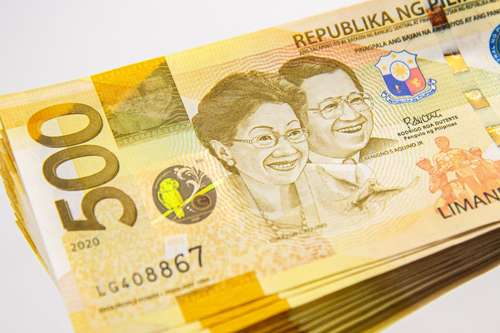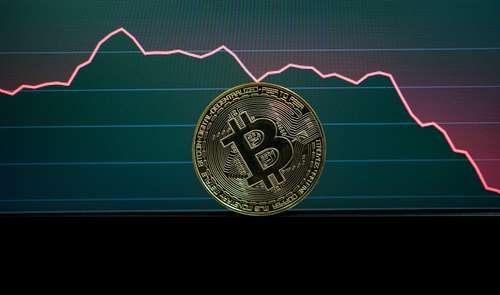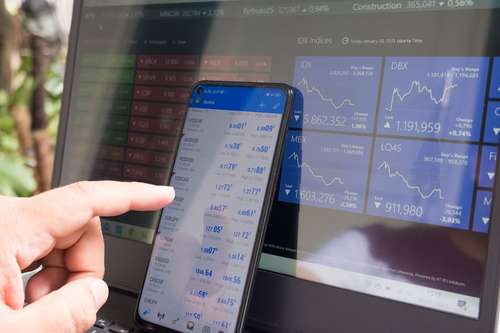The political and financial landscapes are buzzing with the new proposal from a leading Philippine Congressman who has put forward an idea to alleviate the national debt through a government-backed Bitcoin Reserve. It seems as if the world of Cryptocurrency and Digital Currency is colliding head-on with traditional Fiscal Policy. This proposal aims to purchase 2,000 BTC annually over the next five years—with a total of 10,000 BTC—to become a long-term asset for the nation. It’s an innovative twist on Debt Management that blends cutting-edge Blockchain Technology with conventional Financial Policy. As you read on, you might just wonder if this is the spark of a major Economic Reform in the Philippine Economy!
The Proposal: A New Approach to Debt Reduction
This section explores the core concept of the Philippine Congressman’s Bitcoin Reserve plan. It is a plan that not only attempts to tackle the National Debt but also positions the country on the frontier of Financial Innovation and Cryptocurrency Adoption. The idea is as provocative as it is ambitious, and it leverages elements of Economic Strategy, Debt Reduction, and Bitcoin Investment to stimulate Economic Growth.
The Congressman argues that by investing in Bitcoin, the nation can establish a sort of financial safety net that is immune to some of the volatility of traditional markets. This plan offers a diversified approach to managing national resources. Imagine it like planting a seed today that will blossom into a financial forest over the next 20 years. The central bank would hold these Bitcoin assets, safeguarding them from short-term market fluctuations. The idea is that by keeping the reserve untouched for two decades, the country can not only shield itself from immediate economic shocks but also benefit from long-term appreciation in Bitcoin’s value.
Critics often raise valid points about cryptocurrency’s inherent volatility, but proponents counter by highlighting the growing acceptance of Digital Currency across the globe. With countries increasingly incorporating Blockchain Technology into their fiscal frameworks, the Philippine strategy might just be ahead of its time. If implemented well, it could serve as a pioneering Economic Reform for nations struggling under high national debt.
Understanding the Bitcoin Reserve Strategy
This next part breaks down exactly how the proposed Bitcoin Reserve will work as part of the Philippines’ broader Financial Policy. The idea is to accumulate Bitcoin slowly over several years, which minimizes risks while laying the building blocks of a financial buffer against debt. It’s like saving pennies that eventually add up to a fortune! This strategy uses Bitcoin as a store of value similar to a traditional reserve asset, much like gold or foreign currencies.
The Congressman’s plan suggests acquiring around 2,000 BTC each year, which may seem like a gamble at first glance but holds promise as a form of Debt Management. Bitcoin, being a decentralized asset, is seen as a hedge against inflation and a safeguard in times of economic uncertainty. By locking these coins away for 20 years, the government would essentially be taking a long-term view, a refreshing break from typical short-term solutions in Economic Strategy.
Another aspect of this plan is its potential role in enhancing Financial Innovation. With the central bank managing these assets, it offers a controlled way of venturing into the world of Bitcoin Investment without fully exposing the public purse to market risks. This method could be seen as a step towards greater Cryptocurrency Adoption and even inspire similar Economic Reforms in other nations facing debt challenges. The proposal also signals that radical ideas are now being taken seriously in discussions about national fiscal policies!
Potential Impact on the Philippine Economy
This section delves into how the Bitcoin Reserve could influence the broader Philippine Economy. It’s not just about investing in Bitcoin; it’s a shift in thinking about how a nation manages its Resources and handles Debt Management. Every decision on Fiscal Policy has a ripple effect, and this is no exception.
Imagine the economic landscape as a tableau where every financial tool acts as a brush stroke. In this picture, the Bitcoin Reserve is a bold new color that can rejuvenate aging financial systems. The digital currency could potentially drive Economic Growth by increasing investor confidence and paving the way for more dynamic Financial Policies. There is a clear sense of urgency to diversify investments, and many see this plan as a much-needed alternative to conventional methods.
It’s also worth noting that a stable Bitcoin Reserve could boost the country’s stature on the international stage. In a world where Cryptocurrency and Blockchain Technology rapidly shape the future of finance, having a Bitcoin Reserve might provide the Philippines with an edge in Economic Strategy debates. In this sense, the proposal is not just about Debt Reduction—it’s about reimagining what fiscal responsibility looks like in a digital era!
This strategy is not without its critics, though. Some worry about Bitcoin’s notorious volatility and question whether a long-term lock-in period of 20 years is too risky for a nation. However, supporters often argue that all investments carry risks and that this approach, over time, has the potential to transform the nation’s financial landscape in ways that traditional policies have failed to do. The conversation is ongoing, and as always, the devil is in the details.
Looking Ahead: Economic Reform and Digital Currency
Lastly, let’s explore what lies ahead if the Bitcoin Reserve strategy ever becomes a reality. It's not every day that a proposal links Cryptocurrency, Economic Growth, and Fiscal Policy so directly with the prospect of national debt reduction. The discussion opens up a myriad of possibilities for Economic Strategy and Financial Innovation.
The plan is a wake-up call for other nations to contemplate similar approaches in their Economic Reform initiatives. With rapid advances in Cryptocurrency and Blockchain Technology, the integration of a Bitcoin Reserve into a nation’s financial architecture may soon become less of an experiment and more of a necessity. It really challenges the traditional wisdom of Debt Management and offers a radical, yet increasingly popular, alternative.
The proposal suggests a roadmap for future policies, where a government-run Bitcoin Reserve could play a crucial role in reducing the National Debt and stimulating broader economic development. As we stand on the cusp of a new digital era, it's clear that the conversation around Digital Currency is evolving. This political move by the Philippine Congressman may well serve as a catalyst for major changes in Financial Policy that reach far beyond the archipelago.
You might ask yourself, could this be the breakthrough in Economic Strategy that the nation has been waiting for? While the challenges and uncertainties remain, the proposal undeniably sparks hope for a future where innovative tools like Bitcoin become indispensable components in tackling age-old dilemmas like national debt. With a mix of ambition, caution, and forward-thinking, this plan could mark the beginning of a transformative chapter for the Philippine Economy!




